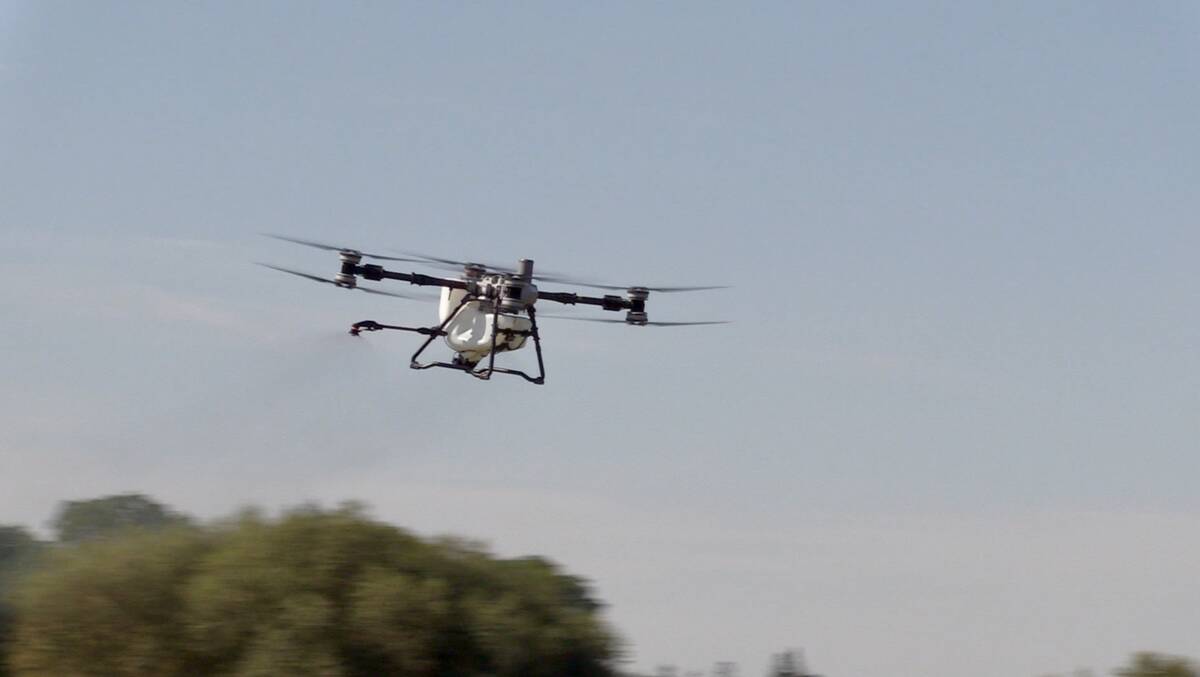Quebec’s overarching farmer organization, l’Union des producteurs agricoles (UPA), has confirmed its computer systems were hit by a ransomware attack earlier this month.
UPA, in a release last Thursday, said it’s working with a cybersecurity firm to analyze the nature and scope of the attack, as well as any possible solutions to securely restore its affected systems.
UPA oversees 130 different unions of producers organized by commodity within 25 specialized affiliated groups, and represents the province’s 42,000-odd farmers and forestry producers regionally through 90 locals within 12 regional federations.
Read Also

Consultations open on expanded regulations for drone pesticide application
Health Canada is seeking public opinion on proposed rules that would allow pesticides to be applied by drone if the chemicals are already registered for aerial application.
The organization said the Aug. 7 attack affected UPA servers, files and relevant computer applications — and also affects “several” of those UPA-affiliated commodity-specific and region-specific bodies.
Ransomware is a form of malware that encrypts a targeted computer system’s files, rendering them unusable, or removes a system’s sensitive data. A ransom, usually payable in cryptocurrency, is then demanded of the system’s owner, in exchange for a decryption key or the missing data.
UPA didn’t say in Thursday’s release whether it had paid, or has been asked to pay, any ransom. It said measures were taken when the incident was discovered, so as to limit the attack’s reach.
UPA added that it won’t release further details publicly, so as to keep its further investigation confidential and running smoothly.
It would only say the farm-level activities of agricultural businesses “are not compromised” by the attack — and that “all actions” required to protect the interests of the UPA, its members, its staff and its affiliate organizations are being considered.
According to Dr. Janos Botschner of the Guelph-based Community Safety Knowledge Alliance, ransomware often enters systems via phishing — that is, creating a bogus email, made to appear like it comes from a legitimate organization, including a link which grants hackers access — or via “credential stuffing,” that is, using stolen credentials from a legitimate source.
Ag and agrifood industries and policymakers are coming around to the need to deal with vulnerabilities at the farm or processor level, Botschner said on an episode of Between The Rows in December.
Organizations running on older or outdated software, for example, are a “juicy target” for ransomware, he said.
At the farm level, ensuring cybersecurity means farmers need to make sure their technology can ward off three main kinds of threats, Dr. Ali Dehghantanha of the University of Guelph’s Cyber Science Lab said in a separate release Wednesday.
Apart from ransomware, those threats include theft of confidential information — that is, anything from livestock feeding schedules to greenhouse temperatures — and vandalism by foreign actors designed to disrupt businesses’ networks.
Interrupting farm supply chains, for instance, may mean farmers lose crops and ultimately lose time and money in replacing them, Dehghantanha said. “Any disruption of infrastructure could cause disruption of the supply chain and affect food security.”
However, he said in the same release, “the level of cybersecurity protection in agriculture is minimal to non-existent… The agricultural sector is a soft underbelly from a cybersecurity point of view.”
Major ag-related targets of ransomware attacks in the past couple of years have included the U.S. (and Canadian) arm of meat packer JBS; farm equipment manufacturer Agco; and at least three U.S. grain handlers.
“Everyone or every business is potentially vulnerable, regardless of the size, and being in an out-of-the-way, rural location doesn’t mean that you’re necessarily secure,” Botschner said in December. — Glacier FarmMedia Network
















